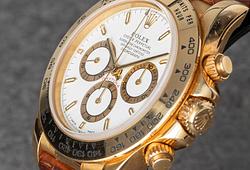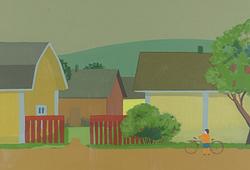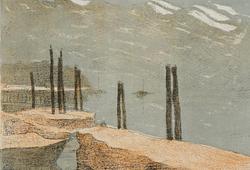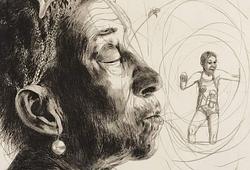Gudmar Olovson
"La Concorde" (Concorde).
Signed Gudmar. Numbered 5/10. Foundry mark Cire Valsuani Perdue. Bronze, dark patina. Total height 73 cm (including base 9.5 cm), length ap. 72 cm. The motif conceived 1969-74.
Kirjallisuus
Harald Friberg och Patrice Dubois, "Gudmar Olovson: Sculptor", 2006, another example illustrated in Paris in front of the Eiffel tower p. 46-47.
Muut tiedot
‘La Concorde’, directly translated as ‘Harmony’, is escaping. She is in motion, moving between continents and people. In a perfectly balanced pose in complete harmony, she looks ahead with determination, one firmfoot on the ground and the other leg lifted high. Her body is frozen in an elegant position that simultaneously expresses strength. The pose leads to thoughts of a skater princess, a dancer or a bird.
In 1969, Gudmar Olovson invited sculptor René Babin to his studio in Montparnasse. They worked side by side, using the same model, a former trapeze artist, each interpreting the extended pause replicated in the sculpture. Babin’s sculpture is titled ‘L’Etoile’ (The Star) and is rawer in style than Olovson’s, the figure even lacking a head.
Olovson’s style is reminiscent of masters such as Auguste Rodin or Edgar Degas and his dancers, but has a powerful yet sensual expression that is entirely his own.
In 2008, Falsterbo Open Air Museum celebrated Gudmar Olovson by presenting five monumental bronze sculptures sited along the shoreline between Falsterbo and Höllviken, with the Öresund Bridge as their backdrop. ‘La Concorde’ is one of these. ‘La Concorde’ can also be seen in monumental form on the French Riviera at Cagnes–sur–Mer, together with the subject ‘J’aime les Nuages’ (I Like Clouds) on the promenade.

























































